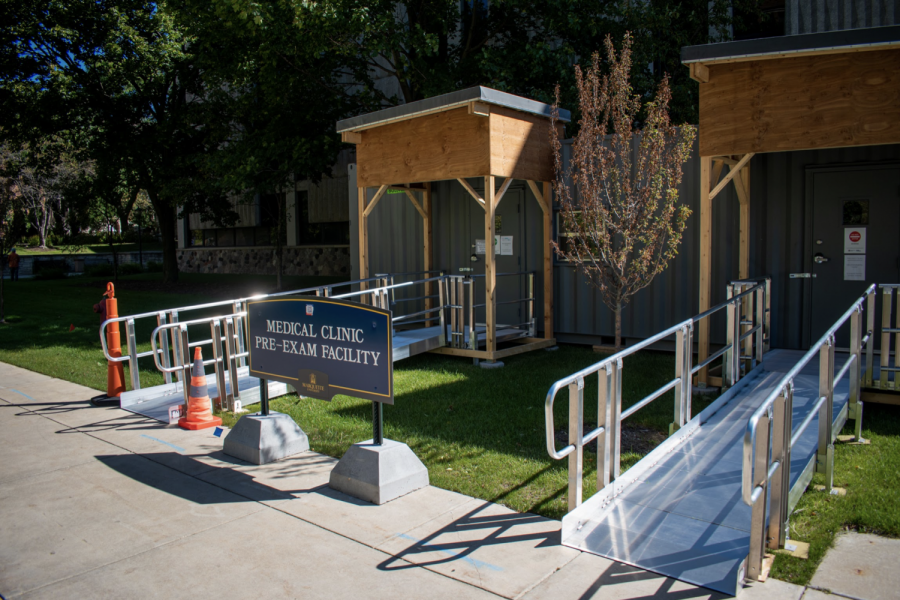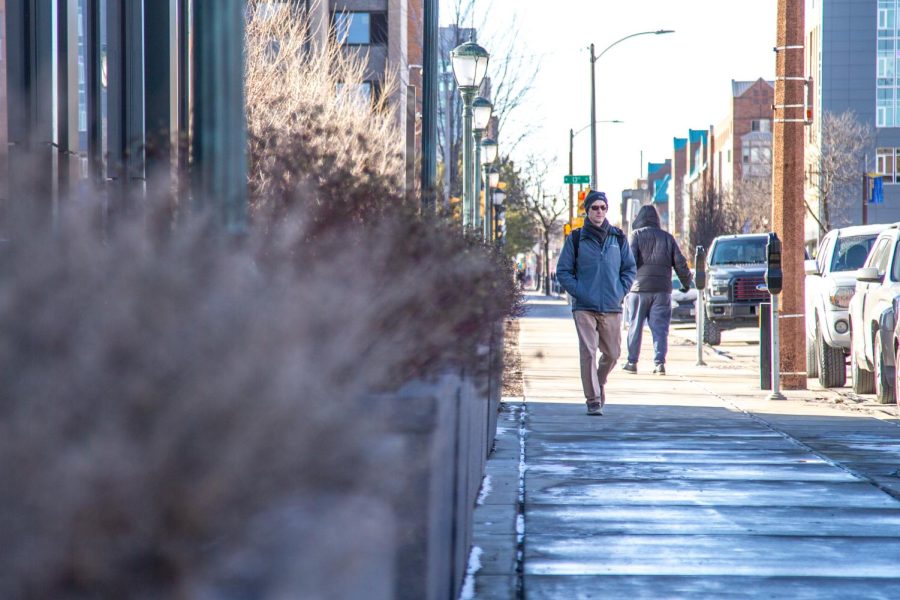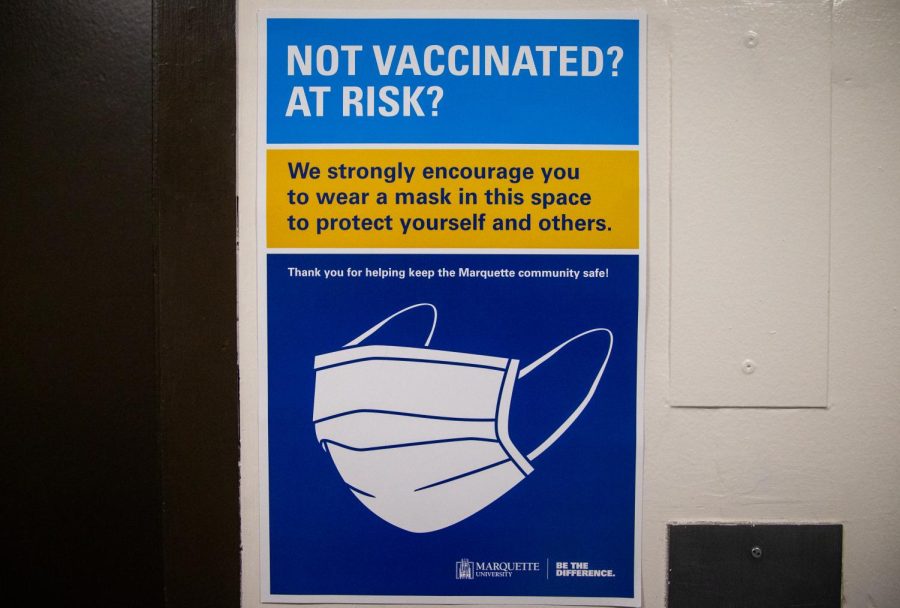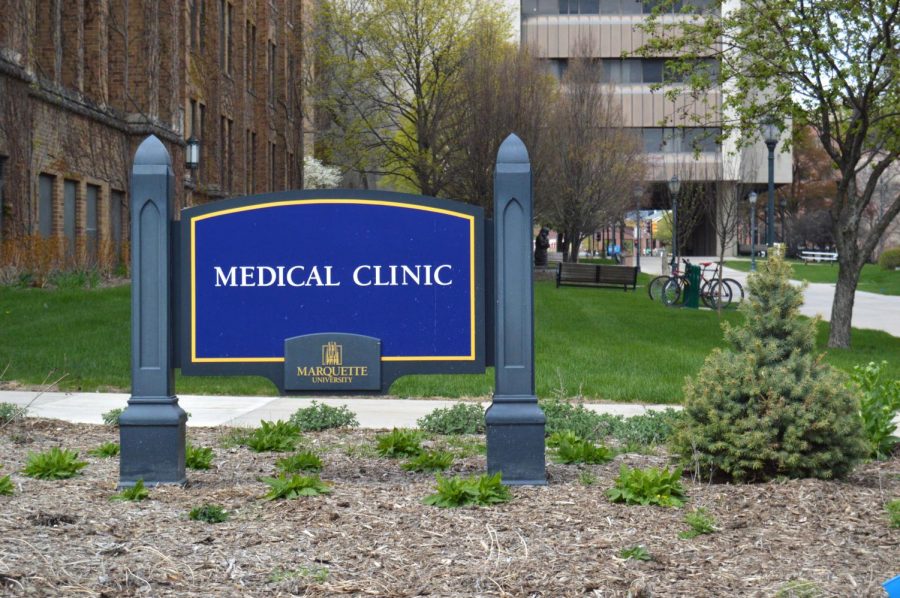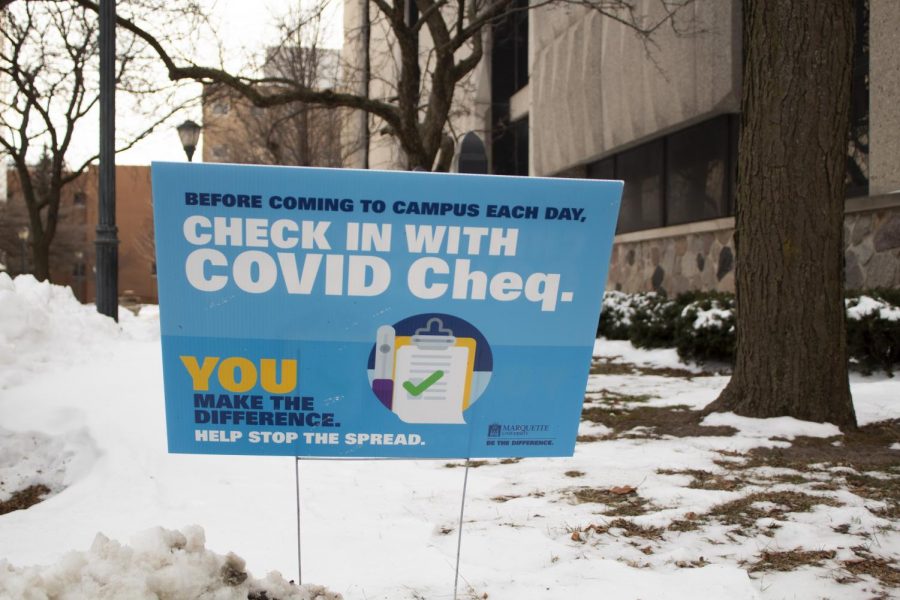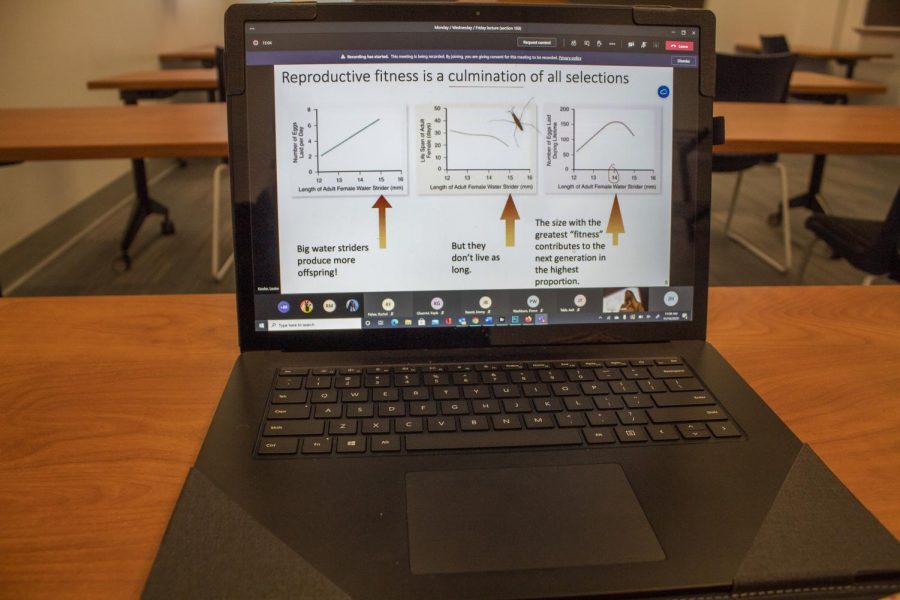As of Sept. 2, 135 students have been tested for COVID-19 at Marquette’s Medical Clinic.
Keli Wollmer, executive director of the Marquette Medical Clinic, said this number does not include student athlete surveillance testing done in accordance with NCAA.
According to Marquette’s new coronavirus dashboard, there have been 23 cases on campus since Aug. 21.
The testing center opened Aug. 24, two days prior to the semester starting.
Tests through the Marquette Medical Clinic are free for all students and can take up to 72 hours to receive results. According to an Aug. 31 university news release, “testing of symptomatic students and their close contacts is very important.”
Savannah Alcala, a junior in the College of Health Sciences, got the test as a precautionary measure after she was feeling nauseous, which is a symptom of COVID-19.
“They took a … swab and did one swab in each nose … and then they made me lean back and do a nasopharyngeal swab test,” Alcala said.
The nasopharyngeal swab test consists of inserting a swab into an individual’s nose about the distance to the ear, which will then make contact with the nasopharynx.
Alcala got the results back the next day. She tested negative.
“I did get a little nervous in between the time I got the test and my next clinic appointment,” said Alcala, “But it wasn’t super terrifying, because I knew the symptoms I had … been going on for so long that it was probably unlikely I had it.”
Students are required to fill out COVID Cheq, a self-reporting survey the university uses to track potential cases of COVID-19 and contract tracing, every day.
If students fill out COVID Cheq and note that they have symptoms of COVID-19 or have been in close contact with someone who is infected, a red stop sign will appear at the end of the check instructing them to isolate or quarantine.
Isolation involves the separation of those infected with COVID-19 from those who are not infected, while quarantining “separates and restricts the movement” of those who were in contact with others with COVID-19 according to the Center for Disease Control’s website.
“If they get a red stop sign they are instructed to call the clinic to discuss their situation and schedule a test if indicated,” Wollmer said.
However, some students, like Morgan Panzenhagen, a junior in the College of Communication, are concerned about potential dishonesty on COVID Cheq, as it is self-reported.
“I think it’s a useful system to have in place but there’s not really a good way to ensure students are honest,” Panzenhagen said.
Panzenhagen said she has concerns around the waiting period for test results. Students without symptoms who attend large gatherings or go home prior to receiving results may unintentionally spread the virus.
Younger people have been shown to be more likely to not show symptoms after a recent study done in Trento, Italy, analyzed that over 80% of people under the age of 20 did not show symptoms when they tested positive.
“The more each and every community member follows and participates in these simple daily checks, the safer we will all be as a community,” Xavier Cole, vice president of student affairs, said.
Cole said that COVID Cheq is just one way to help the Marquette community remain safe during the pandemic. Though not everyone has been filling out COVID Cheq every day, Cole said that a majority of the community is, and the university is striving to reach 100% completion. A recent academic senate meeting said that 75% of students are participating in the check-ins. There are no publicized consequences of not filling out the COVID Cheq.
“If one does not fill it out honestly, one should not participate in any aspect of the Marquette community,” Cole said. “If there is an honest mistake in reporting or clicking, a person can request a retake. If one is honest and received a red stop, following the directives that follow are paramount.”
If students test positive, they have the option to apply for the Froedert Hospital of Wisconsin’s “GetWell Loop.”
The GetWell Loop is an “application for remote patient monitoring service and gives patients information about their care while allowing them (to) connect with the COVID Care Team,” Wollmer said.
The GetWell Loop provides those who are enrolled with remote check-ins and care instructions. Patients who are enrolled also have 24/7 access to a nurse to ask questions when they’re in isolation.
“The COVID care team at Froedtert keeps in regular communication with the Marquette Medical Clinic staff so we can provide additional care through telehealth if needed, and would also refer a student for a higher level of care should their illness get worse and warrant ER care or hospitalization,” Wollmer said.
She also said that “referrals for mental health needs” are available through the GetWell Loop.
The cost of coverage through the GetWell Loop is covered by Marquette, but if someone needed emergency hospitalization due to COVID-19, that financial responsibility lies on the student.
Editor’s Note: Savannah Alcala is the roommate of Managing Editor of the Marquette Tribune Annie Mattea. Mattea had no role in the reporting or editing of this story.
This story was written by Benjamin Wells. He can be reached at benjamin.wells@marquette.edu

